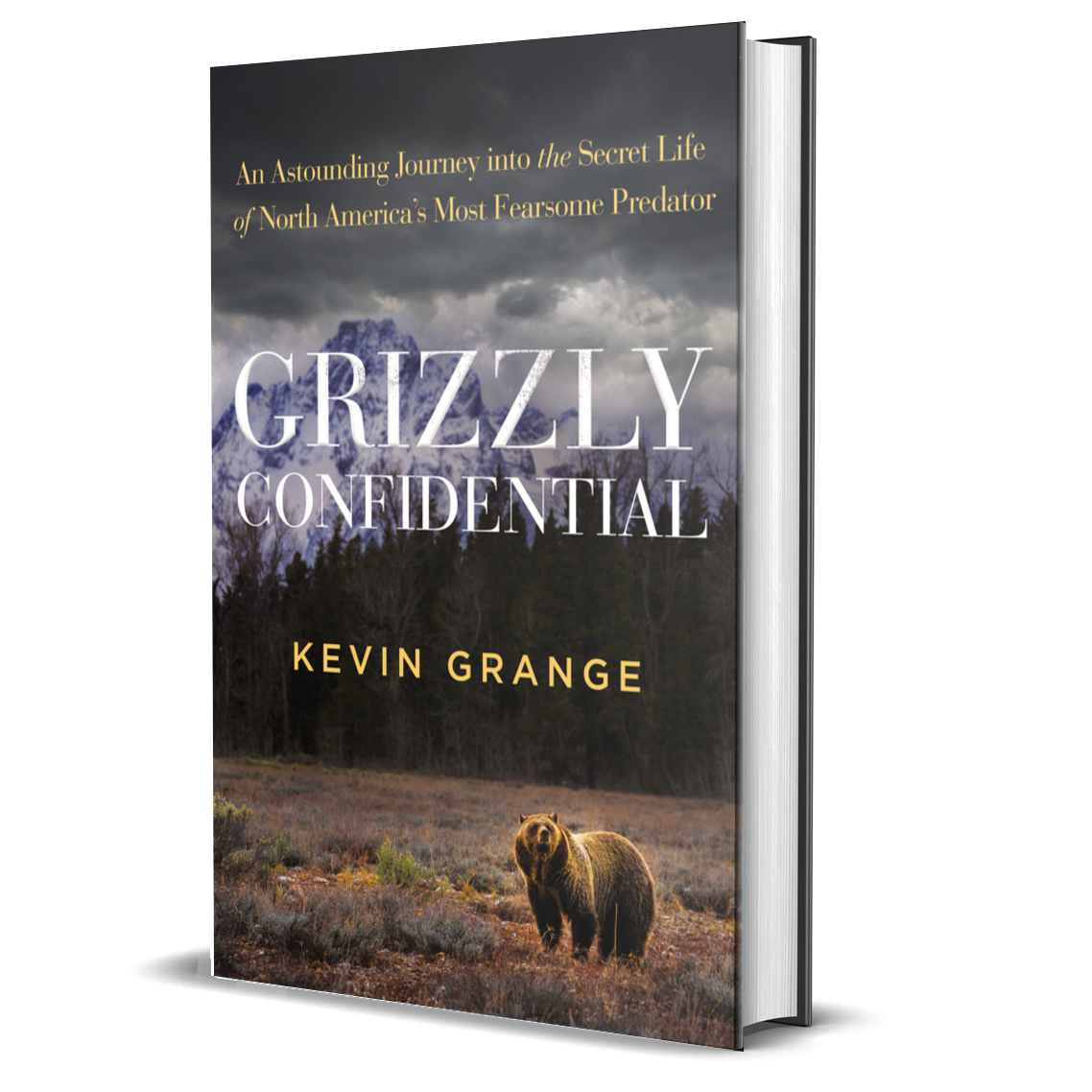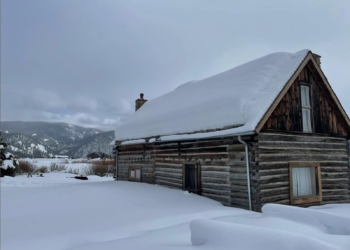Former paramedic and park ranger shares experiences and research from his new book, ‘Grizzly Confidential’
By Leslie Kilgore EBS CONTRIBUTOR
On tour for his new book “Grizzly Confidential,” author Kevin Grange visited the Big Sky Community Library on Oct. 9 to share his experiences researching and traveling in the field with bear experts around the country.

Based in Jackson Hole, Wyoming, Grange said he has always been fascinated by bears but when the well-known Grizzly 399 took her four cubs on a walkabout around his home in Jackson in 2021, he realized he was also terrified by them.
“As a firefighter paramedic and former Park Ranger, I’ve been trained to go into those places that might frighten me,” Grange said. “The best way out is through, so I decided to explore my fascination and fear of brown bears by venturing into the wild as a park ranger.”
Grange began traveling around the American West and Alaska to learn everything he could about bears and answer the important question: how can we coexist? He hopes to answer that question with “Grizzly Confidential.” Grange hopes readers learn more about bears, realize that coexistence is possible with some discipline and that the rewards from that coexistence are many and worthwhile.
Some of the rewards he addressed during his visit include bears regulating prey species, tilling the soil with their claws, dispersing seeds through their scat and bringing nitrogen and phosphorus into the forests by discarding salmon carcasses.
“Bears have a cultural and spiritual value to many people, and they are a sign of ecosystem health,” Grange said. “As bear whisperer and conservationist Lynne Seus says, ‘where the grizzly can walk, the earth is healthy and whole.’”
Grange explained how his experiences researching bears, interviewing scientists and being out in the field with various experts on the subject helped create a lens in his book through which we can view and learn about the different aspects of bear and human coexistence.
“There are strong divisions within the bear world between animal rights groups, biologists, wildlife managers and the hunting and ranching communities. I hope my book generates discussion, allows people to view bears from a different perspective, and facilitates discussions between groups that are not currently in dialogue,” Grange said.
While using science, humor, and his own initial prejudice to debunk myths about bears—primarily that they’re “ferocious, blood-thirsty carnivores who are only out to get people,” which he said is often how they’re portrayed in the news—he also described specific moments in his book that he found particularly challenging to write about.

During Grange’s research, he joined a bear hunt on Kodiak Island with several sportsmen. “Personally, I’d never shoot a bear, so this chapter was challenging to write, but many biologists and conservationists were telling me how a highly regulated hunt can improve tolerance for bears and provide economic stimulus to a community,” Grange said. “I also discovered how sportsmen can help report [and] prevent poaching, assist biologists with field counts, and help some people find value in grizzlies when they otherwise would only see them as a net loss on the landscape.”
The most surprising thing Grange learned while writing “Grizzly Confidential” was that grizzlies aren’t “out to get us.” Rather than strictly carnivores, they are “opportunistic omnivores” who mainly feed on non-meat sources because that’s the type of food most predictable for bears.
“Bears live by a ticking clock—they have a limited time to get the fat and nutrients they need for hibernation, so they mainly want to be left alone and they don’t like surprises,” Grange said. “I discovered bears aren’t naturally aggressive towards humans. They only act that way when they feel surprised, threatened, or when they’re hungry and have been taught to associate people with food.”
Grange hopes his book will educate more people that coexistence with bears is quite simple. He mentioned following best practices when in bear country, such as traveling as part of a group and making noise; always carrying bear spray; avoiding hikes in high-density bear areas at dawn or dusk when bears are most active; and securing attractants like trash, compost, food, birdfeeders, beehives and chicken coops around one’s house.
“Rather than one big action by, say, a federal agency, coexistence requires a lot of small actions like securing trash by thousands of people,” Grange said. “And one omission can cause the whole thing to crash. It’s great if you’ve secured attractants around your house, but if your neighbor hasn’t done the same across the street, a bear could become food-conditioned and begin creating problems.”
While writing “Grizzly Confidential,” Grange interviewed experienced biologists, read research documents and fact-checked every chapter with a variety of bear experts. He also understood that there are differing opinions in the bear conversation, and worked to include multiple perspectives in each chapter.
“Ultimately, the book is a snapshot in time during the years I was writing and researching this book, but it hits on a few timeless truths regarding people’s relationship with bears; how we’ve evolved, and some of the best practices for keeping grizzlies on the landscape,” Grange said. “Storytelling and literature play a huge role in awareness and conservation. My job as a writer is to make the science interesting and entertaining. And, ideally, open hearts and minds.”












